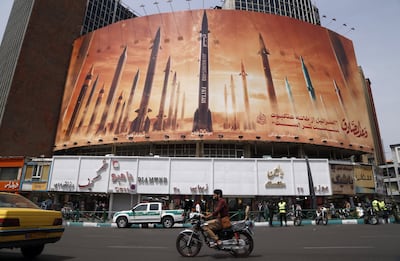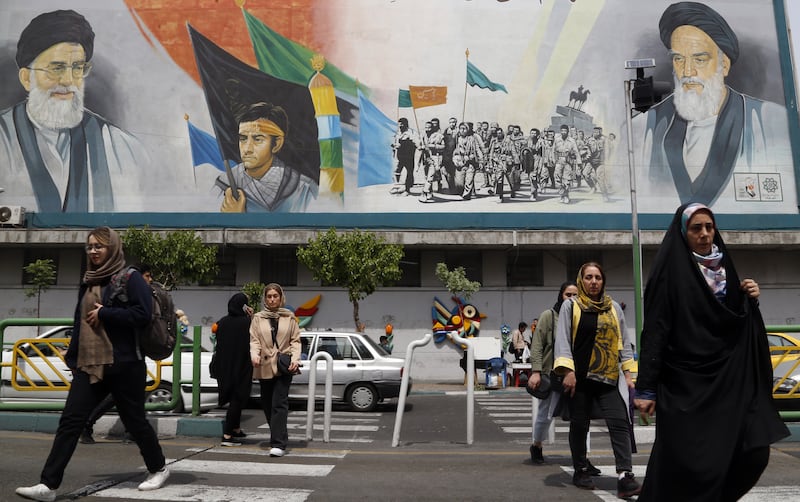Live updates: Follow the latest on Israel-Gaza
Iran is gearing up to counter an Israeli retaliation, possibly within its borders, sources close to Tehran told The National on Tuesday, after Israel said it has decided to respond to the Iranian attack.
Iranian military and political leaders have determined a specific level of Israeli response that could be tolerable, even if on Iranian soil, without provoking severe retaliation from Tehran, the sources added.
“Iranian expectations involve a limited attack, regarding its scope and destruction. For instance, this might include strikes on facilities that Israel says are connected to the Iranian attack,” one of the sources explained.
“If it’s the case, then Iran may threaten to use its right to respond at the right time and place, and not engage immediately in a counter-retaliation that could lead to an open confrontation.
“But if the Israeli attack is more aggressive and destructive than expected, a strong Iranian response will follow. In this case, it is most likely that regional armed groups will join the Iranians.”
Iran attacked Israel on Saturday in retaliation for the Israeli strike on the Iranian consulate in Damascus, on April 1. It was Tehran's first known direct attack against its regional foe and marked the start of a new chapter in the confrontation between the two countries.
The vast majority of the drones and missiles fired were intercepted by Israeli and allied air defence systems in the region. It caused little damage in Israel, although a girl was reportedly wounded by shrapnel.
Nevertheless, Israel’s war cabinet, led by Prime Minister Benjamin Netanyahu, decided on a retaliation option that is intended to be “painful” to Iran without sparking a full-blown war, according to Israeli media. An Iranian official then warned Tehran would retaliate “within seconds” against any Israeli attack.
Major Israeli retaliation
“It will be hard for Tehran to accept the idea of a major Israeli retaliation after it did everything it did last Saturday to successfully send a message that the phase of patience has ended,” a second source close to Iranian diplomatic circles said.
“Alternatively, Israel could decide to resort to the security and intelligence option to inflict significant damage on Iranian interests or facilities through an attack that generates a major media sensation but does not bear the clear fingerprints of the Mossad, nor does it lead to a war."
US President Joe Biden, who is running for re-election in November, has been trying to prevent Israel's war in Gaza, which broke out on October 7, from spreading across the region.
On Monday, White House National Security Council spokesman John Kirby said the Biden administration would not be involved in any Israeli response.

“This is an Israeli decision to make,” he emphasised. “Whether and how they'll respond around this attack on Saturday and when would be squarely with them.”
International media outlets, quoting Turkish, Jordanian and Iraqi officials, reported that Iran had given notice of the attack days in advance.
However, Mr Kirby said Tehran had not informed Washington and the attack was defeated thanks to the preparation and the co-ordinated response of the US and allied nations.

“Israel today is in a far stronger strategic position than it was only a few days ago,” he stressed.
Meanwhile, the International Atomic Energy Agency's director general Rafael Grossi said that Iran has temporarily closed its nuclear complexes because of “security considerations”.
Asked if he was concerned about the possibility of an Israeli retaliatory strike on an Iranian nuclear site, he replied: “We are always concerned about this possibility.”
He added: “What I can tell you is that our inspectors in Iran were informed by the Iranian government that yesterday [Sunday], all the nuclear facilities that we are inspecting every day would remain closed on security considerations."





